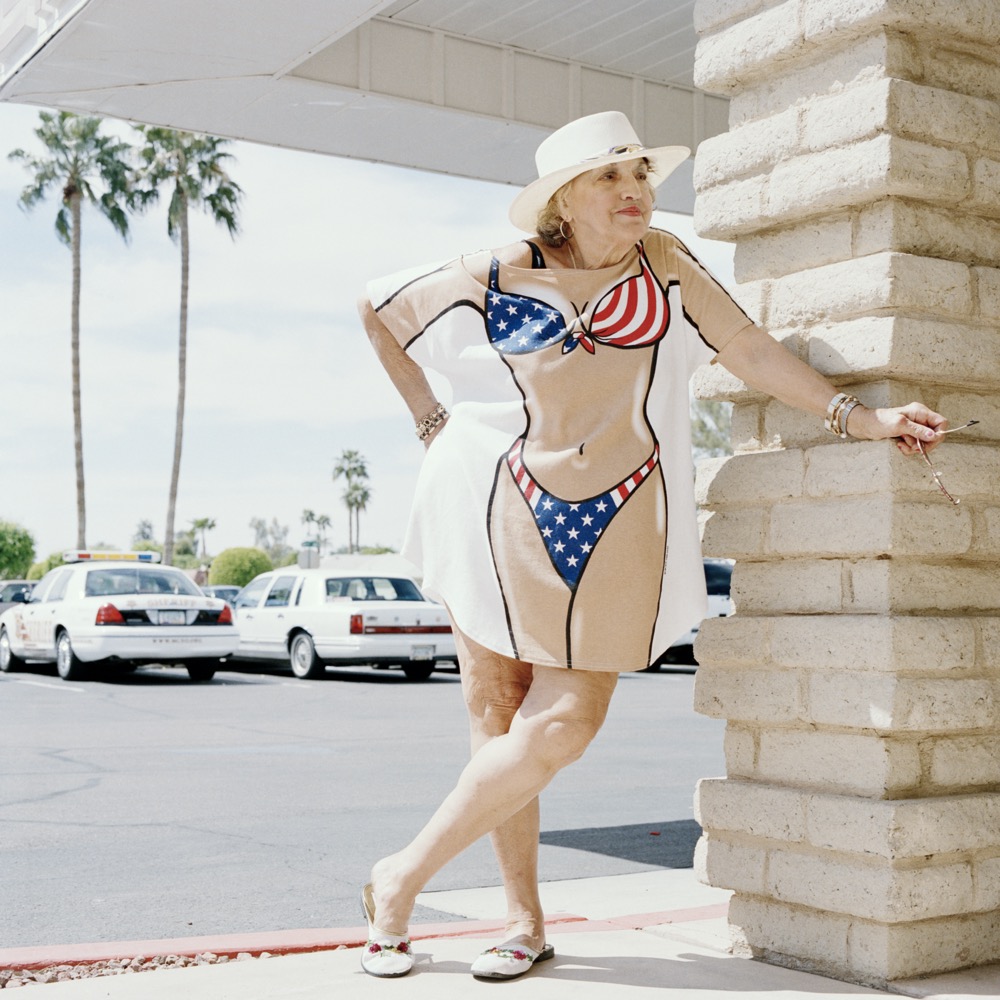In their works, the internationally known photographers selected for this exhibition illustrate the world through its conflicts and fractures, but also show how art and solidarity can connect people. The works also reflect the aesthetic development of documentary photography from the 1980s to the present and bring 40 years of contemporary history to life.
Whereas the photographers at the beginning of this period still treated the protests against nuclear power, rearmament and airport expansions using a classic, black-and-white style and were very close to the events, colour photography came to the fore in the 1990s, analogous to the technical reproduction possibilities of the press.
Arranged chronologically, the exhibition starts with the works of the two co-founders of the agency, Manfred Linke and Günter Beer, followed by artistic-documentary image and text works from the 1990s by Bettina Flitner, featuring people at the Berlin Wall. In her work Surface Tension (1997) Katharina Bosse often portrays women from all over the world, while Michael Lange presents an experimental work on Los Angeles (1999), photographed on black-and-white Polaroid slide film, which can be interpreted as a homage to film noir. In his individual, cool and detached way marked by high visual quality, Henrik Spohler documents how the agricultural industry in all parts of the world produces food today (The Third Day, 2012). Sandra Hoyn visits a brothel in Bangladesh and shares the fate of the women and girls there (2015). In the end, the circle closes and the photographers revert their gaze to Germany: Hannes Jung provides a feature on the New Right (2017) with a demagogic effect, while Andreas Herzau presents his long-term work on Chancellor Merkel in subjectively combined image sections, which was first published in 2018 as a complete book. In 2019, David Klammer became a permanent chronicler of the resistance against the deforestation of the Hambach Forest, and finally, in 2020, the young Ingmar Björn Nolting traveled all over Germany, creating a unique documentary of the Corona crisis, which has deservedly won multiple awards.
The exhibition is accompanied by a supplementary timeline, which reviews numerous world political events between 1981 and 2021 on 11 panels, with a supplementary panel - representing the year 2022 - on the outbreak of war in Ukraine.
Curator: Peter Bialobrzeski
Design: Sarah Fricke and Lea Sievertsen, Distaff Studio, Berlin
Project management in Ulm: Dr. Raimund Kast
Publication
The exhibition will be accompanied by a publication in newspaper format. On a total of just over 340 pages, this exhibition can be purchased at the Stadthaus Ulm for € 19,- and online at www.laif-shop.de
On view are photo series by
Christian Als, Christoph Bangert, Günter Beer, Regina Bermes, Jürgen Bindrim, Peter Bialobrzeski, Jan-Peter Böning, Katharina Bosse, James Whitlow Delano, Barbara Dombrowski, Stephan Elleringmann, Norbert Enker, Maria Feck, Bettina Flitner, Peter Granser, Jan Grarup, Andreas Herzau, James Hill, Sandra Hoyn, Britta Jaschinski, Hannes Jung, David Klammer, Vincent Kohlbecher, Axel Krause, Dirk Krüll, Michael Lange, Paul Langrock, Frederic Lezmi, Manfred Linke, Kai Löffelbein, André Lützen, Ingmar Björn Nolting, Helena Schätzle, Henrik Spohler, Berthold Steinhilber, Andreas Teichmann, Wolfgang Volz, and Michael Wolf.
Opening: Sunday, 29 January, 2023, 11:00 p.m.
About laif
The laif photo agency was founded in 1981 by a small group of photographers based in Cologne's Südstadt quarter. The aim was to support each other in the distribution of images, in realising joint photo projects and to exploit synergies. After 40 years, laif now represents almost 400 photographers worldwide and around 40 international partner agencies, including the publishing syndication of the New York Times.
With the marketing of image licenses for high-quality photographs and the arrangement of editorial and corporate shootings, especially in an international context, laif is one of Germany's leading image agencies.
The predominantly photojournalistic image pool includes high-quality portrait series of well-known personalities as well as numerous outstanding documentaries by award-winning photographers, including World Press Photo and Pulitzer Prize winners.
In spring 2022, laif photographers founded the laif cooperative, which has been the owner of the laif photo agency since July 2022. This step is intended to ensure that the laif photo agency remains independent on the long run and that the photographers have better control over the use of their images – independently and free from outside interests. The current 320 members of the cooperative are mainly photographers of the laif agency, picture editors, supporters of independent journalism and high-quality photography as well as supporters of freedom of the press. It is possible for any person to become a member of the cooperative.
"The laif cooperative of photographers sees itself as an institution for keeping up and promoting independent photojournalism, high-quality photography and press diversity – a cornerstone of democracy – by safeguarding, supporting and further developing the agency and brand 'laif'." (Preamble of the laif cooperative)
Supporters/Sponsors
The exhibition and the publication were sponsored by the Stiftung Kulturwerk of VG Bild-Kunst and by Bundesverband Soziokultur e.V./NEUSTART KULTUR. The high-quality prints of the exhibition were produced with the generous support of WhiteWall Media GmbH.




